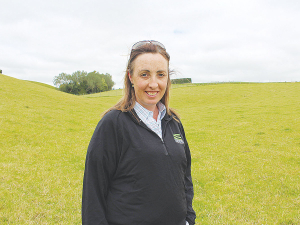Southland farmers have been assured that, while concerning, there are no immediate implications from a court decision which requires them to apply for a resource consent just to continue farming.
Federated Farmers Southland spokesperson Bernadette Hunt says about 3000 farmers in the region, already under the pump with prolonged rainfall and flooding, don’t need more headaches.
Hunt told Dairy News that Federated Farmers is extremely disappointed at the decision and are working through a range of channels to decide on next steps and take appropriate action.
“There’s a process to go through now before any changes come into force, and that will take time in any case – therefore there are no immediate implications for farmers to be concerned with.
“Farmers in Southland are under immense pressure with the current weather conditions and I’m very concerned that this doesn’t add to that mental burden.”
The Southland Water and Land Plan was notified in 2016. Rule 24 – which seeks to allow incidental diffuse discharges from farming activities (e.g. animal urine) as a permitted activity provided farming activities are managed under other rules in the plan – was initially appealed to the Environment Court by Forest & Bird and Fish & Game. The court subsequently questioned whether the rule complied with Section 70, particularly in relation to degraded water bodies.
Environment Southland appealed the decision to the High Court and then the Court of Appeal, but has been unsuccessful. All courts have now indicated they do not consider that Rule 24 currently complies with Section 70 of the RMA.
ES chief executive Wilma Falconer says the council has written to the Government outlining the situation and requesting an urgent change to Section 70 as part of its review of the RMA, to address the issue.
Read More
Federated Farmers says the decision has a range of very complicated consequences with extraordinary economic implications.
Hunt says farmers can be assured that Federated Farmers will not let this lie.
“This ruling, which if it stands means more costs and red tape for farming businesses, couldn’t have come at a worse time. Many farming families and businesses are under the pump with the high rainfall, flooding and related disruption and costs. It’s just more stress piling on farmers.”
Hunt says decisions like this show just how deeply broken New Zealand’s resource management laws have become.
“The Resource Management Act has gotten so far away from its original purpose and intent. It was supposed to be enabling, but it’s become overly complex and restrictive.
“The entire process has been hijacked by environmental activist groups like Fish & Game and it’s now almost impossible to do anything productive.”
Hunt says piecemeal, one-off changes drip-fed from the courts over the last 30 years, rather than systematic improvements, have just added cost and complexity.
“The Government are currently in the process of replacing the Resource Management Act, which is welcome news and long overdue, but that’s a longer-term solution.
“In the short-term, farmers are still stuck farming under the current rules that have become completely unworkable and unaffordable.
“We need a practical, commonsense solution to bridge the gap between today and whenever our new resource management laws arrive.”


















